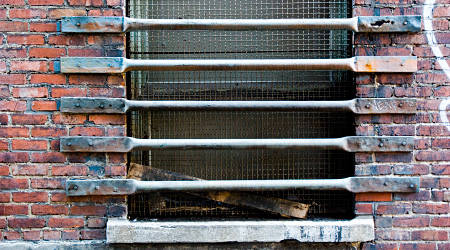Safety Issues When Buying A Home

Buying a home is about more than a big backyard and a place to park your car, it is also a place for you and your family to feel safe. Safety will be the primary concern for most families and it's better to ask about them early in the buying process before getting too attached to a home. While most issues which can pose possible safety concerns will be addressed during the home inspection, you may not want to wait before asking specific questions regarding health and safety. Keep certain issues in mind when buying a home to protect yourself and your investment from significant safety issues further down the road.
Water and Air
Homes drawing from a municipal water supply very rarely experience quality issues but the same cannot be said for residences which use well water. Off development properties often have wells drilled to provide water to a residence by tapping an aquifer. Do some research to determine if there is any significant water or air contamination from oil and gas operations or other industrial businesses. Fertilizer runoff from farms and feedlots should also be investigated for potential water contamination.
Entrances and Exits
There are two primary concerns when it comes to home accessibility, meaning entering or leaving the premises. In terms of entering the home, examine all windows and doors to verify that the lock securely and provide adequate protection against burglary and other home invasion scenarios. Sliding glass doors are common entrance for burglars and existing deadbolts may not be a secure as you think. Being able to leave the home is equally important because of fire considerations. Many fire and police departments recommend against installing security bars for the single reason of possibly being trapped in a residence during a conflagration.
Structural Integrity
Verifying the structural integrity of a home basically means guaranteeing that it won't fall down on you in the middle of the night or while eating dinner. While this scenario may sound implausible, it has been known to happen when roofs collapse or walls buckle especially during times of extreme weather like excess rain or snow. If there are any signs of cracking, warping or bowing in the walls then move on to a different home.
Pest Infestation
Animal infestation should also be a concern due to various diseases which are spread by rodents and insects. For example, Hanta virus is commonly located in the Southwest and it's spread by rodent droppings. It has a fairly high mortality rate so any premises which has signs of rodent infestation should be avoided. Termites and carpenter ants can lead to structural issues even when repairs are made and a home is sprayed or fumigated. Lyme disease is a problem in the Northeast and residences with a high incidence rate should be considered a health concern especially for children.
Toxic Elements
Common toxic elements in a home include radon for basements and carbon monoxide for heating systems. A radon test should be used to verify whether or not a basement is safe and proper heating and cooling maintenance with an annual inspection should mitigate carbon monoxide poisoning fears. While not as much of the concern in homes built in the last 30 years, lead paint should be tested for on older homes. In climates with high humidity or any home which has had pipes burst, ask about toxic mold since it may be an ongoing health issue and can initiate or exacerbate respiratory illnesses.
Elsewhere on StockMonkeys.com







